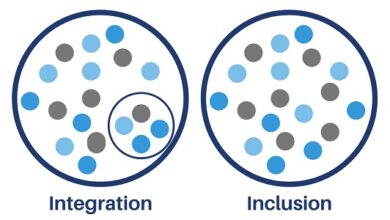Taboos examples and Euphemisms
Taboo is a concept used in philosophy, anthropology and sociology and is related to the prohibition, censorship, danger and impurity of certain social activities. Taboos examples
Tabu supports discussions on controversial topics, generally discriminated against by society, from customs, religions, sexual options, lifestyle, among others.
Note that this may change over time, being related to time and generations. For example, something that might be taboo for your grandmother, for you, is now normal.
Taboos are created by society through imposed moral standards and social conventions and therefore may differ from one culture to another. Taboos examples
So while in Judaism eating pork is forbidden, a taboo, in other cultures it is extremely normal.
Etymology
To find the etymology of the term first we have to take into account that it reaches Spanish from the English word ‘taboo’ , because it was introduced in Europe, in the last quarter of the 18th century, by the British navigator and explorer James Cook , who He heard it for the first time on his trip to Polynesia in the form of ‘tapu’.
The Polynesians used that term to refer to what was forbidden, they could not touch, name, eat or perform in the most sacred aspect of their religious convictions. He who skipped the norm and broke the ‘tapu’ was severely punished.
The term taboo ( tapu ) comes from the Polynesian language, which means something sacred, special, forbidden, dangerous or unclean.
Taboos and Euphemisms
Taboos are the words that refer to issues considered unpleasant by a culture and, therefore, are considered foul, vulgar and in bad taste. They usually refer to four fundamental issues: sex; the eschatological (excrement and certain parts of the body); death and disease; Religion and the supernatural. Not all words in the language have the same consideration among speakers. While most of them are used without qualms in any situation, some have a much more restricted use because they are considered inelegant, offensive or inappropriate. Taboo words are called that because speakers tend to avoid them in formal situations.
The bad words or tacos, generalized in colloquial speech, are related to linguistic taboos. These are isolated words or short sentences without meaning, which allow the speaker to express their emotions and tensions, their aggressiveness and violence, their surprise and even their joy. Euphemisms are often resorted to by changing the significance of tacos, curses and profanity. Thus, the reference to God has been disguised in ten, and the devil in hell. Taboos examples
Euphemisms are the words or expressions that speakers use instead of taboo words. Thus, many people use the euphemisms intimate parts by sexual organs; make greater waters to defecate; go to a better life to die; or the evil one by the Devil; Blind by blind or person entered in years by old. Just as the use of a taboo word may sound in certain circumstances as rude, the use of a euphemism sometimes sounds affected, ridiculous or inappropriate. This is the case, for example, with terms such as pee or pompis.
Knowing how to adapt the words to the different communicative situations is an indication of our mastery of the language; Therefore, it should be borne in mind how inappropriate it can be to use a taboo term in a formal situation such as opting for a euphemism in a colloquial or familiar one.
when something is taboo
If you turn on the TV these days, you can scroll through the channels and find a wide variety of characters or topics being discussed. On one channel, you might find a reality show about a tattoo shop and its customers, while another might feature a frank or humorous discussion of sex. In the 21st century, these shows wouldn’t seem strange, but not so long ago, such topics were unquestionably taboo.
The classic definition of taboo is something prohibited for religious or social reasons. For example, the Hebrew Bible identifies eating pork as taboo because pigs are unclean animals. In a modern context, however, the word taboo is less specific and is often used to describe something considered socially unacceptable or controversial. Going back to the earlier example of modern television, subjects like sex were once considered off-limits for television because many people felt it was inappropriate to discuss these things publicly. Only recently have society‘s attitudes on these topics changed. Taboos examples
Different aspects of Taboos
religious taboos
Although we use the term casually today, the classic definition of taboo (religious or social prohibitions) is still relevant in a contemporary context. In the present day, for example, many Jews continue to abstain from eating pork because it is not kosher , meaning it is not permitted by biblical Jewish law. Among different religions, there are varying degrees of commitment and adherence, but many people continue to adhere to biblical law and avoid what has been identified as taboo.
Another religious taboo you are probably familiar with is the issue of homosexuality in the Christian religion. Many people believe that the Bible says that homosexual behavior is a sin and is forbidden. As such, they not only refrain from such behavior, but also do not support the rights of others to engage in homosexual behavior. While not all religious people feel this way, homosexuality is a common taboo among many religions. Taboos examples
social taboos
Due to an increased awareness and tolerance of diversity, social taboos in Western countries such as the United States are few and far between today; however, there was a time in the recent past when many things were considered taboo in society. For example, until about 50 or 60 years ago, ending a marriage through divorce was considered a social taboo because, among other things, it was seen as a weakening of the family and a disruption of the most valued social institution.
While not expressly religious, social taboos often overlap with religion, particularly in matters of morality. If we go back to the issue of homosexuality, for example, there was a time when LGBT people were much less accepted in society than they are today. In the past, people who opposed gay rights might not consider themselves adherents of biblical law, but their views of gay people were often influenced by their religious beliefs or the beliefs of the culture at large.
legal taboos
In a modern context, the laws of a specific culture can be considered something of a taboo because the people of that culture have decided that, for one reason or another, certain things should be prohibited. In Germany, for example, it is illegal to use or distribute materials that display the Nazi insignia, the swastika . After the fall of the Third Reich at the end of World War II, Germany went to great lengths to ensure that something like the Holocaust did not happen again, so they used Nazi symbolism as taboo in their culture.
Another good example of social taboo in a legal context is perjury , which is the act of lying when you have sworn to tell the truth in court. Lying in court is not necessarily a crime, but it becomes perjury as soon as the lie has a direct bearing on the outcome of the case. For example, if you’re testifying in a murder case and you say you own a unicorn, you won’t be charged with perjury because your lie has nothing to do with the case. However, if you tell the court that the accused is innocent because on the night of the murder he was with you looking after your unicorn, you could be accused because you are trying to influence the outcome of the case. Taboos examples
sexual taboos
As mentioned earlier, outside of illegal behavior, there are few things that are still considered taboo in contemporary societies, but one area where taboos are still regularly applied is in human sexual behavior. In fact, one of the most taboo subjects in the United States is pedophilia , which is a sexual attraction to children. Pedophilia is a good example of a taboo that remains strong in modern culture because the vast majority of people believe it is harmful and wrong, which makes it socially forbidden. It should also be noted that acting on these feelings is a very serious crime.In fact, the subject is so taboo that even discussions of pedophilia make people very uncomfortable, which is evidence of the continuing strength of the taboo in society.
Examples of Taboo
From the most controversial topics of the taboo, we can highlight some, namely: Taboos examples
- Incest
- Virginity
- Abortion
- Death
- drugs
- Cannibalism
- female sexuality
- Homosexuality
- bisexuality
- transsexuality
- Tattoos and Piercings
- Body Modifications
- Prostitution
- food taboos
- linguistic taboos
- zoophilia
Some examples of taboos and euphemisms
Taboos – Euphemisms
Hallucinations – perceptual alterations
Abnormality – exceptionality
Prison – prison center or facility
Deficiency – disability
Madness – psychic disability Getting
high – self-stimulating
Sick – patient
Mentally retarded – person of late development
Suicide – voluntary death
Mass dismissal – employment regulation
Insult – verbal aggression
Mother-in-law policy
Civilian victims – collateral years
Prostitute – public or street woman
Pornography – adult material
Jailer – prison officer
Prisoner – inmate or inmate
Black – colored
Torture – persuasion methods
War – military intervention
Terrorist –
Fat activist – entered into meat
Dying – leaving
Parir – lighting
Nurse – clinical assistant
Cancer – deadly or long illness
Expulsion – temporary exclusion
Toilet – toilet, service

